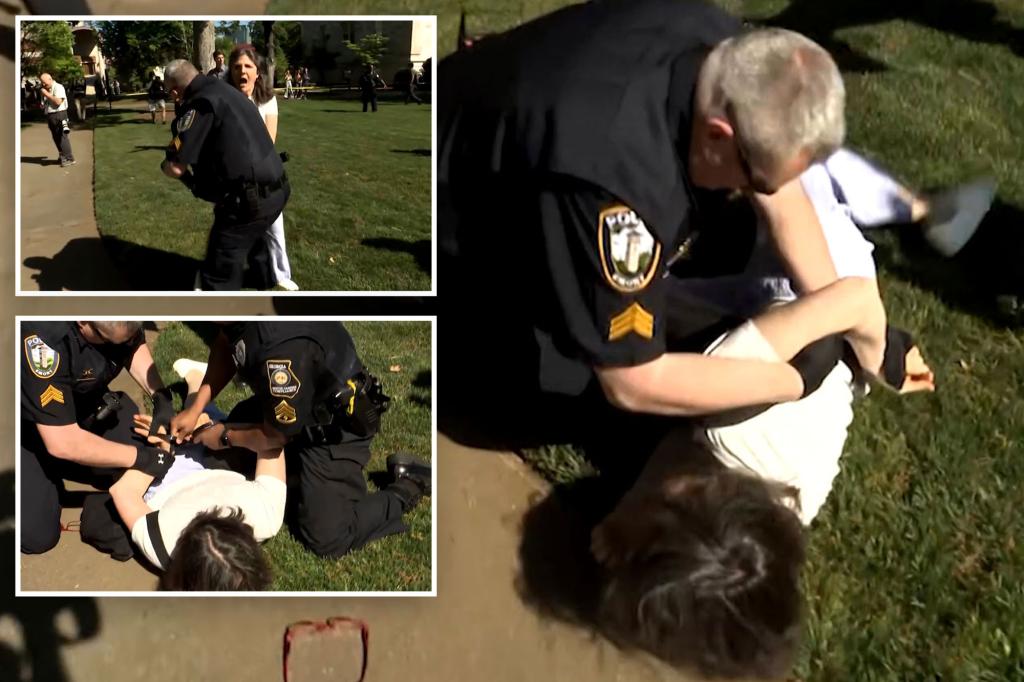Dozens of anti-Israel protesters were arrested at Emory University in a violent clash with police, including at least one professor seen being wrestled to the ground and handcuffed in a viral video. In the chaotic scene captured by CNN and widely circulated on social media, officers moved in on the impromptu tent city created by demonstrators on the Atlanta campus, prompting screams from the crowd as protesters were taken into custody.
In the video, Emory economics professor Caroline Fohlin can be seen approaching one of the protesters being arrested before she herself is grabbed by an Atlanta police officer and ordered to the ground. As the officer wrestles Fohlin to the grass, she identifies herself as a professor while crying out in distress. The situation escalates as more officers join in to handcuff her, with protesters surrounding them and shouting insults, including comparing the police to Hitler and fascists.
University president Gregory L. Fenves issued a statement to the Emory community condemning the “highly organized outside protesters” whom he blamed for the violence that took place on campus. Fenves expressed his distress over the disturbing videos of the incident and the fact that members of the community had to witness and experience such interactions. He also emphasized that the arrests of community members during the protest were taken very seriously and deeply upset him.
In another video taken during the mass arrest, a woman identified as Noelle McAfee, chair of the philosophy department at Emory, is seen with her arms behind her back being led by an Atlanta police officer in tactical gear. This incident adds to the more than 500 arrests that have occurred in campus anti-Israel protests across various universities from Massachusetts to California. The protests have especially impacted NYU and Columbia, with additional arrests reported at Yale, the University of Southern California, The Ohio State University, Indiana University Bloomington, and Emory.
The arrests at Emory University were part of a larger trend of protests against Israel that have been sweeping college campuses throughout the country. The intensity and scale of these protests have led to confrontations with law enforcement, resulting in numerous arrests. Images and videos of these clashes have circulated widely on social media, sparking controversy and discussions about free speech, activism, and the Israeli-Palestinian conflict.
Despite the condemnations from university officials and the broader public, the protests have continued to garner support and participation from students and faculty members alike. As tensions remain high on college campuses regarding the Israeli-Palestinian conflict, it is evident that these demonstrations are part of a larger movement that seeks to raise awareness and advocate for change, even in the face of opposition and potential repercussions.













